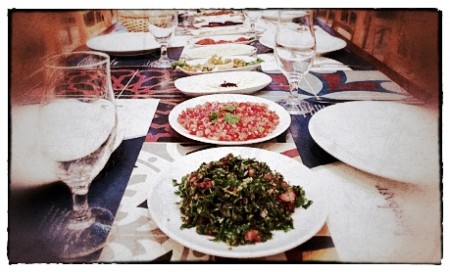Meze is an event rather than a type of dish. It’s an evening gathering of family and friends for drinking, chatting, and leisurely grazing on nibbles and tidbits. The defining feature of meze is that people are there to partake; there’s no prescription for what must appear on the table. A spread could be as simple as bread, white cheese, and melon. It could be as bar-snacky as nuts and olives. A more substantial meze will often constitute the whole meal and last for hours. This is the one course that Turks don’t mind lingering over; as long as there’s still a smattering of food and something in the raki bottle, the meze will continue.
Most Turks find meze unthinkable without raki. Indeed, much meze lore relates to what tastes best with a tipple and what guards the body against the ill effects of alcohol. Purists insist that fruit, especially melon, is the only authentic and healthy meze. Others put olives and white cheese on the essentials list. In summer, many invite erik (plum), often dipped in salt, to their table.
–Excerpted from World Food Turkey



Recent Comments